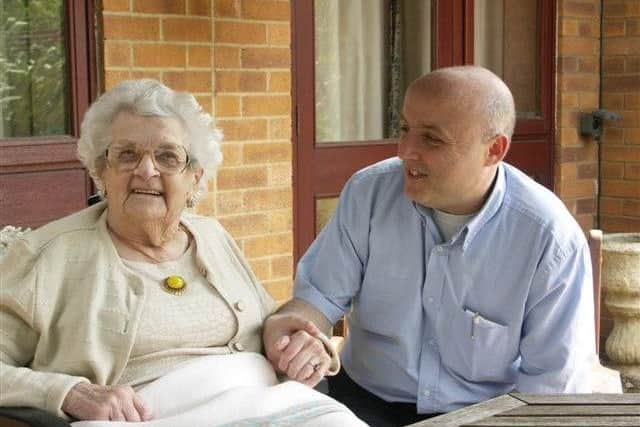We need fresh look at end-of-life care


People are living longer lives but they’re not necessarily living healthier lives into older age. People are, and increasingly will be, living with more complex needs than ever before. We know that the majority of over-65s in Scotland have two or more long-term conditions, and the majority of over-75s have at least three. Nearly half of people in the last year of their life have multiple long-term conditions.
As we’ve discussed on these pages before, access to care is disappointingly biased; it depends on who you are, your life experiences and where you live. Our recent work looking at barriers to care has highlighted that one in four people are dying without the care and support that they should be getting. At Marie Curie we believe that no-one should die alone without the help they need.
Advertisement
Hide AdAdvertisement
Hide AdThe professional social care workforce plays a vital role providing housing support, homecare and care home services. The equivalent of 75 per cent of the total NHS workforce in Scotland are working in housing support and homecare services and care homes. Think about what a huge resource that is, and yet people are dying in conditions that they shouldn’t be in.


In 2015 according to ISD figures one in 12 beds in Scottish hospitals were occupied by people waiting to leave, equating to 567,853 bed days. Of these, 68 per cent of people were waiting for social care. MND Scotland showed that in 2015, 276 people in Scotland died waiting for their social care packages to start, while others waited over a year. That’s not good enough when people are dying and need support now.
A report from Unison Scotland found that nine out of ten paid carers don’t have enough time to support people properly. It also found that one in five also feel that they don’t get adequate training. Many feel that cutbacks, an intensifying workload and reduced hours are having a negative impact on the people they provide care for. Morale is low and staff can’t see how this is going to get better. It’s clear that the people leading and managing these services need to think differently.
The integration of health and social care is a golden opportunity to redesign services, but there’s much progress still to be made. Audit Scotland recently found that some progress is being made in developing new models of care, but this hasn’t translated into widespread change in local areas. We need to figure out how more care can be delivered with less funding and increasing pressures.
We wanted to get our own picture of social care at the end of life and have produced a report with MND Scotland, Hospice UK and the Association of Palliative Care Social Workers. At the centre of this we outline that there needs to be change across Scotland involving innovative and creative solutions to use the resources we already have differently.


What is vitally important is that we make sure there is timely access to appropriate social care services for those with a terminal condition and at the end of life. There needs to be improved communication between services, increased understanding of the challenges people face at the end of life, and both training and support for staff to help them manage and navigate that complex care. Health and social care partnerships need to be able to understand their local need and unmet need and ensure that appropriate services are in place. More than that though, they must to be able to respond quickly when people need them to.
That means harnessing people across communities, statutory services, and independent and not-for-profit sectors. We must collaborate to develop efficient, co-ordinated and sustainable models of care that are flexible and adaptable enough to work with people, for people.
All of this needs to happen and we need to start addressing this now if we’re to meet the Scottish Government’s ambitious and necessary target that everyone who needs palliative care will have access to it by 2021.
Dying to help: A report into social care at the end of life can be downloaded from www.mariecurie.org.uk/change. Susan Lowes is Marie Curie Policy & Public Affairs Manager, Scotland